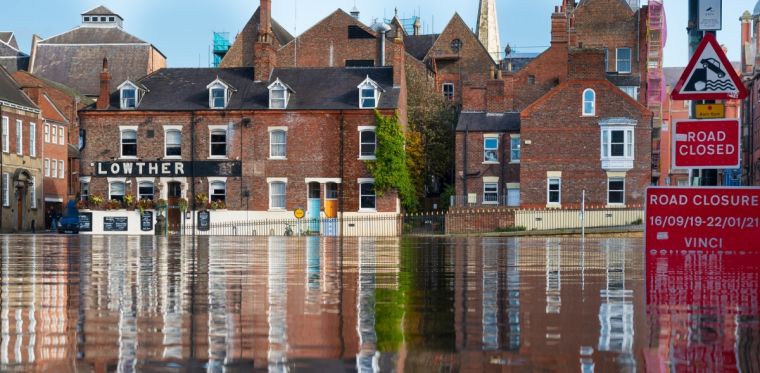Who can you trust to tell the truth about climate change?

Extreme weather and climate change have rarely been out of the news in 2020 so far. We've seen bushfires raging in Australia and flooding across the UK. Meanwhile the UK Government is gearing up to host a UN conference on climate change in Glasgow this autumn, and recently the Church of England committed to net zero carbon emissions by 2030.
Opinion polling shows that most people across the world believe that climate change is happening and that humanity is at least partly responsible (including in the UK, where 88% of people think this).
For most people, then, the science is settled and the debate is about how bad it's going to be and what to do about the climate crisis. But some still question whether there is indeed a climate crisis or even whether humans are responsible for climate change. This is true in the church just as much as wider society.
A certain amount of scepticism about the science is no bad thing. After all, scientists are fallible human beings like everyone else and bring their own worldviews to their work. Indeed, our understanding of the world often advances by scientists questioning the established wisdom.
And yet ... all truth is God's truth, whether Biblical or scientific. I have been reflecting much recently on Proverbs 12: 17, "An honest witness tells the truth, but a false witness bears lies." (NIV)
As Christians, we have a responsibility to be honest witnesses and tell the truth. In my mind, that also means basing our views on the truth as far as we can discern it.
Most of us are not scientists. I may have a science degree, but that doesn't make me a scientist, still less a climate scientist. I, like most other people, have to rely on what others tell me, principally through the media.
Yet I know that the media is often not trustworthy. All media has its own biases, and as for social media, it often feels like the Wild West where all kinds of unsubstantiated opinions and 'evidence' are presented as truth.
An unpublished study by Brown University recently reported by the Guardian found that "a quarter of all tweets about climate on an average day are produced by bots". The suspect tweets, purporting to be from real people but most likely from automated accounts, weren't even-handed but tended to "spread misinformation about the science."
We've seen this during the recent Australian bushfires too. I don't know whether bots were at work, but there were certainly claims and counter-claims about the origins of the bushfires, and scientists I know have commented on the amount of misinformation being spread. I fear that some of this has also influenced commentary by Christians. The Carbon Brief, a media source I do consider trustworthy, has provided a useful summary of the media coverage.
Why are there so many false witnesses, to use the language of Proverbs? I suspect there are vested economic interests who have a lot to lose from a cleaner, greener world. Lobby groups like the Global Warming Policy Foundation are cagey about their funding sources and have a track record of muddying the waters to create confusion in people's minds. The swirl of misinformation is suspiciously like the attempts by the tobacco industry in the 1950s and 1960s to discredit the science that links smoking to cancer.
But my point is not so much about what or who lies behind the misinformation, but to ask who we can trust. As Christians, how do we know who to turn to?
I'm a town planner by profession, but in a previous job I also worked on climate change policy. I was privileged to work alongside many scientists, such as the late John Lanchbery, a physicist by background. I trusted John to explain the science to me and relied on his unique grasp of the international politics of climate change.
For Christians, there are many fellow believers who work in climate science. One might think of the evangelical Christian Sir John Houghton who chaired the Intergovernmental Panel on Climate Change's scientific working group in the 1990s. Or more recently the evangelical Canadian Katharine Hayhoe of Texas Tech University, director of the Climate Science Center. Hayhoe has a remarkable gift of communicating the science in a way that non-experts can understand. Her video series Global Weirding deals with many of the questions that people commonly ask. It was a go-to source for me in preparing for a recent church discussion on climate change.
Christian organisations like Climate Stewards, A Rocha and Tearfund also play a valuable role in highlighting climate and ecological breakdown to a wider audience and pointing to practical things that we can do in response.
Christians are of course free to disagree with each other on these issues (graciously I hope), but as we seek to be honest witnesses, it's vital that we base our opinions on trustworthy sources. If the majority of scientists are right – and I believe they are – the issues at stake are too important not to.
Simon Marsh is home groups coordinator at St Neots, Cambridgeshire.











